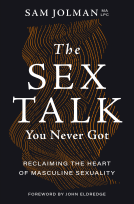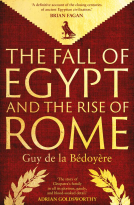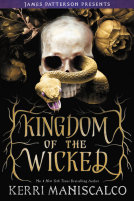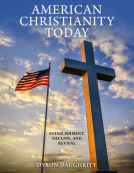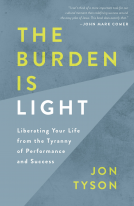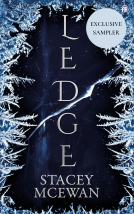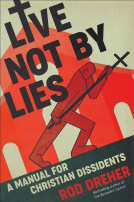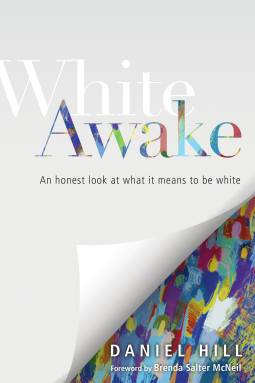
White Awake
An Honest Look at What It Means to Be White
by Daniel Hill
This title was previously available on NetGalley and is now archived.
Send NetGalley books directly to your Kindle or Kindle app
1
To read on a Kindle or Kindle app, please add kindle@netgalley.com as an approved email address to receive files in your Amazon account. Click here for step-by-step instructions.
2
Also find your Kindle email address within your Amazon account, and enter it here.
Pub Date Sep 04 2017 | Archive Date Sep 29 2017
InterVarsity Press | IVP Books
Description
"Daniel, you may be white, but don't let that lull you into thinking you have no culture. White culture is very real. In fact, when white culture comes in contact with other cultures, it almost always wins. So it would be a really good idea for you to learn about your culture."
Confused and unsettled by this encounter, Daniel Hill began a journey of understanding his own white identity. Today he is an active participant in addressing and confronting racial and systemic injustices. And in this compelling and timely book, he shows you the seven stages to expect on your own path to cultural awakening.
It's crucial to understand both personal and social realities in the areas of race, culture, and identity. This book will give you a new perspective on being white and teach you to be an agent of reconciliation in our increasingly diverse and divided world.
Advance Praise
"Daniel Hill sought me out as a mentor over two decades ago, and it has been a joy to watch the progress of him and his church. Now, in White Awake, he shares lessons learned on his journey of following Jesus into the ministry of reconciliation. As Christians in this day and age, we need to all think critically and closely examine the teachings of Scripture. In this book, you will find fresh thinking around the critical topic of race, and I would encourage every Christian to read it."
—John M. Perkins, author, cofounder of the Christian Community Development Association
"Many evangelicals of color have grown weary of ringing the bell and issuing the clarion call for racial justice. While we do not look for white evangelicals to legitimize or affirm our perspective, it's nice on occasion to know that there are 'woke' white evangelicals out there. It's nice to know that these efforts have not been in vain. Daniel Hill has been my friend and ally for many years. In this book, you will have the chance to hear his story and heart—and learn from a learner."
—Soong-Chan Rah, Milton B. Engebretson Associate Professor of Church Growth and Evangelism, North Park Theological Seminary, author of The Next Evangelicalism and Prophetic Lament
"White Awake is a profoundly pastoral book with serious implications for the ecclesial, social, and political life of our nation. At a time when conversations about race seem increasingly cross-pressured by various interests and motivations, readers can trust Daniel Hill to tell them the truth about racism and white supremacy. Hill does not use these fraught issues to manipulate, but rather to help his readers see more clearly. If Christians read and consider this book carefully, it will help them. It helped me. I'm grateful to Daniel for writing White Awake."
—Michael Wear, author of Reclaiming Hope
Available Editions
| EDITION | Paperback |
| ISBN | 9780830843930 |
| PRICE | $16.00 (USD) |
| PAGES | 192 |
Featured Reviews
 Adam S, Reviewer
Adam S, Reviewer
Summary: The nature of what it means to be White in American, especially as a Christian, is not looked at nearly enough.
When I was thinking about graduate school I made a conscious decision that I wanted to be challenged in my faith and culture and that I did not want to go to an Evangelical seminary. That was helped by the fact that there were very few options for the type of program that I was looking for. The University of Chicago was one of about six schools in the country that had a prescribed program for a dual masters with a Masters of Divinity and a Masters of Social Work (officially it is a Masters in Social Service Administration, but it is an MSW equivalent).
That decision was made in large part because I had an undergrad degree from Wheaton College. I grew up in a solidly Evangelical wing of the Baptist world and I was comfortable in my theology.
Going to University of Chicago was a very good decision. I know I could get more out of my education if I were more mature with more life experience. But at the time, being exposed to other sincere Christians that were Catholic, mainline, and even one classmate that was a non-theistic Unitarian expanded my view of the church.
I still clearly remember a class while I was in the School of Social Work on race and ethnicity. The professor talked about how we often do not understand our culture until we are separated from it. If you are from the South and move to the Northeast, you will understand parts of what it means to be Southern that you did not understand before. This similar to getting married. What you assumed was true of every family, becomes clear that it was unique about your family.
I did not at the time think of the lesson primarily through the lens of Whiteness, but through the lens of my Evangelical-ness. While at Wheaton I was not completely comfortable describing myself as Evangelical because of some of the nuances of what that meant in that location. But at University of Chicago I claimed Evangelical much more clearly because it was a unique category.
White Away: An Honest Look at What it Means to be White is a very helpful look at the category of whiteness as a Christian. Part of the reality of the United States is that most White people are mostly around White people. We may have a friend that is a person of color. But most of us do not have a wide network of non-white friends and business associates. Most White people live in communities that are predominately White and go to churches that are predominately White and work at jobs with predominately White co-workers.
That is much less likely to be true of non-White Americans because of simple demographics. Most non-White Americans have to interact with people of different cultures, races and ethnicities on a daily basis and therefore have a much better idea of other cultures and racial groups than what most White people have of non-White cultures and racial groups.
This is a very long introduction to the book, but I wrote it to say that I am not unacquainted with the concept of exploring my racial identity. I have spent a significant amount of time over the past year reading other books about racial conflict or history of that conflict in the United States. But still, White Awake is a very helpful book. There are a few ‘dumb White guy’ examples that I think might be off putting to some. But the larger context is that Daniel Hill has been attempting to come to terms with what it means to be a White Christian church leader in a multi-cultural world for a while. It is a task that is not every completely finished because our culture and position in that culture is continually shifting.
I think White Awake is particularly helpful in the context of two additional books. One is also by Intervarsity and was released last spring, The Myth of Equality by Ken Wytsma. Wytsma focuses on the concept of White Privilege and gives mini-history of how we came to be in this place with commentary about theology and church culture and how those can actually make the problems of White privilege worse.
The second complementary book is The End of White Christian America by Robert Jones. This is a book primarily about demographics. Jones is the head of a polling firm that focuses on religious polling. There are lots of numbers, but the short version is that White (Protestant) American used to be demographically and culturally dominant. It will remain culturally dominant for a while longer, but demographically, it is no longer dominant. In 2014, more non-White babies were born in the US than White babies. My suburban county is still predominately White, but the schools shifted to a slightly larger non-White population about 2 years ago. That shift is happing throughout the United States, even though many communities will continue to be predominately White for decades to come.
What is important about White Awake is that Hill focuses on separating being White (who we were created to be) from normalizing White culture as dominant. Being White is not a sin or something to be repented from. But the culture of Whiteness as dominant and demeaning of other cultures is sinful. We can only come to understand the difference between the two as we come to understand White culture in relationship to other cultures in the US. We can learn a lot about this from books, movies, tv and other arts. But actually hearing it from people we are in relationship to is essentially to moving form a theoretical idea of understanding Whiteness to a repentant attitude of understanding how we are complicit (even when we do not want to be) in a culture that over values Whiteness and harms non-White people.
This is a book that I would like to go through with a small group. I have done a lot of background reading and processing prior to reading it, but it still challenged me significantly. I am sure a second reading and discussion would challenge me even more
 Scott C, Reviewer
Scott C, Reviewer
Daniel Hill, the author of White Awake and pastor of River City Community Church, cares deeply about racial awareness and reconciliation. White Awake opens with Hill’s brief memoir regarding his encounter with cultural awareness; the first two chapters serve as an introduction. In the first chapter, he addresses the time in his life where he realized he was white. Fueled by the statements of a friend, Hill sought out answers through educating himself any way he could. He began putting things together while confessing his confusion to his mentor. His mentor suggested Hill reflect on whose voices he hears regularly: who are his closest friends, mentors, preachers/teachers theologians he relies on, and the authors of books he is reading?
In chapter 2, Hill tells of his experience at Willow Creek and then working on the staff of a “young-adult ministry.” The author provides an honest look at his attempt to fix everything and the even more honest feedback from area pastors. At this point in the story, Hill makes a connection to the story of Nicodemus and the necessity of being born again and having our eyes opened to the privilege whites experience and the systemic prejudice against all others. The right question isn’t always, “What should I do?” but often, “Can I see?” Afterwards, we can seek transformation.
Beginning in chapter 3, Hill moves from personal narrative to help the reader grasp the topic at hand. “What is Cultural Identity?” is where Hill appropriately begins. He introduces the concept of normalization of white culture. When countries have white culture as the “norm,” it is the standard by which all other cultural identities are evaluated. In defining privilege, Hill references Rev. Julian DeShazier who defines it as “the ability to walk away.” Hill’s concludes the chapter is to suggest how Christians can think about cultural identity and the blind spots within white Christian circles. Regarding engaging with cultural identity, the Christian has biblical motivation as we are all transformed and given new identities such as: born again, baptized, child of God, and disciples of Christ.
Chapters 4-10 provide a “cultural identity journey” for white Christians, moving from encounter, to denial, disorientation, shame, self-righteousness, awakening, and finally active participation. During an “encounter,” a person recognizes differences. Such an event is an interruption and Hill certainly interrupts our usual way of thinking as he differentiates between ethnicity and race, the former being based on commonalities while the latter is a social construct. Hill references others as he suggests slavery played an important role in these distinctions. White supremacy, therefore, is “an ideology that has informed and sustained this construct.”
Hill offers a helpful phrase “narrative of racial difference,” originally termed by Bryan Stevenson, to describe what takes place during the era of slavery to justify ownership of other human beings. The phrase simply means this: differences are merely based on race which results in a person being more or less valuable. Utilizing a Stevenson quote, Hill suggests the narrative of racial difference combines the two ideas of race being a social construct and this construct being built around the history of white supremacy. This narrative stands in contrast to the biblical doctrine of all humans being made imago Dei.
Denial is an obvious process, as encountering sin can be painful. Hill references Mark Charles who uses the term “white trauma” to describe the difficulty of white people to recognize and admit the racial oppression that has occurred. On the other side of denial is disorientation, where we begin to see racism as it is present. During this process, Hill suggests we are to ask why we are disoriented. Chapter seven covers shame and Hill refers to the research of Dr. Brene Brown in differentiating between shame and guilt.
A white person will typically become self-righteous at a point as they are on a crusade to fix racial injustice and do not check themselves just like the elder brother in the parable of the prodigal son. The answer to self-righteousness is simple: repentance. In chapter 9, Hill overs seven markers providing stages of awareness. Chapter 10 finally asks the question, “What am I supposed to do?” Being an active participant involves continual education and purposefully seeking out the voices of those whose background is different from our own. Finally, as you see areas in which you can do work and speak out against racism and injustice, this is where you serve consistently and
Regarding Hill’s reference to “white trauma,” the technical definition of trauma involves the actual threat of death, which I do not believe occurs in this instance. Another definition where some differences may lie is in privilege, which is also defined as some benefiting from the system while others do not. White privilege then becomes something sometimes harder to see, such as unknowingly extending trust to a white person but not extending that trust to a person of color.
I appreciate White Awake as an introduction racial awareness. For me, the topic has been brewing in my mind for a little under a year; Hill’s book is the first I’ve read on the matter. White Christians need humility to listen to the experiences of others and seek to understand. Hill does not claim for White Awake to be a textbook on race, history, culture, or Scripture.
It is easier to see systemic or social sin than to see the sin in our own lives. There are a lot of questions when it comes to what do you do. Take a step back and move away from the terminology and the broad category of society. Consider our command as Christians to love our neighbor as ourselves. I would recommend Christians to pick this book up and go through it with an open mind. Even if you have your own formulated opinions of how the gospel transforms our lives, I hope you will find White Awake encouraging and can interact with Hill's genuine desire for seeing the unity of God’s multi-ethnic church.
Hill, Daniel. White Awake: An Honest Look at What It Means to Be White. Downers Grove, Ill.: IVP Books, 2017. 192 pp. $16.00
*I received a temporary, pre-published digital copy for review from IVP via NetGalley.
An exploration of the author's journey toward greater recognition of white privilege, white culture, and how to most effectively seek to reconcile among various racial groups.
The beginning of the book is most consistent with the title, featuring a lot of the author's story as he came to a greater awareness of his whiteness in contrast to the experiences of others and his attempts to promote greater racial harmony and reconciliation.
Most of the book works through a personal process of coming to an understanding of the racial dynamics at play in America: encounter, denial, disorientation, shame, self-righteousness, awakening, and active participation. The author provides encouragement through the process, for the reader to grapple with the various phases him or herself as well as to serve as an encouragement for others.
In a time when many white people are coming to a greater awareness of their privilege and how people of color do not have the opportunity to have the same experience of American life as they do, this is a good resource to help white people come to grips with the situation and find a productive way forward.
